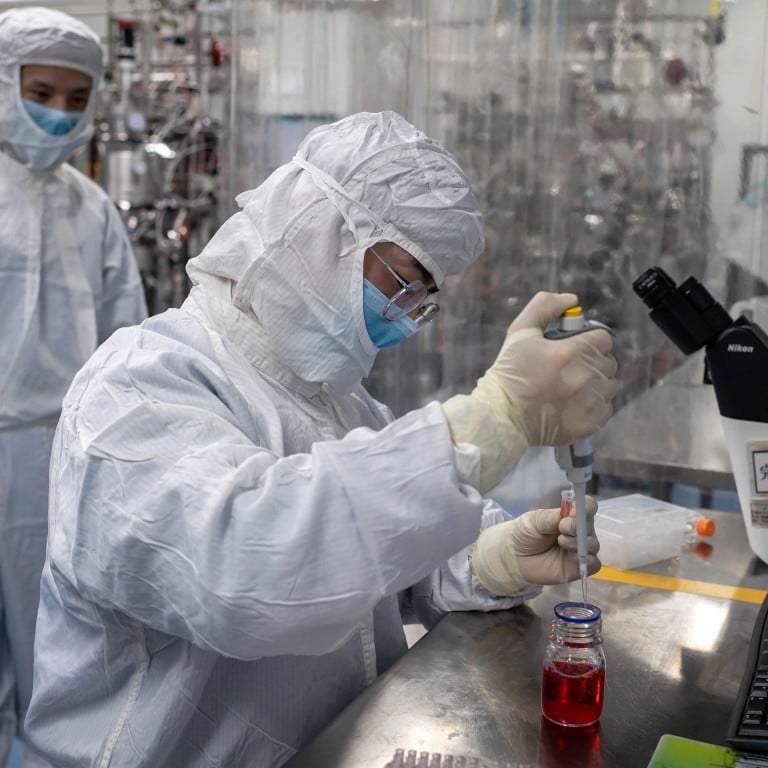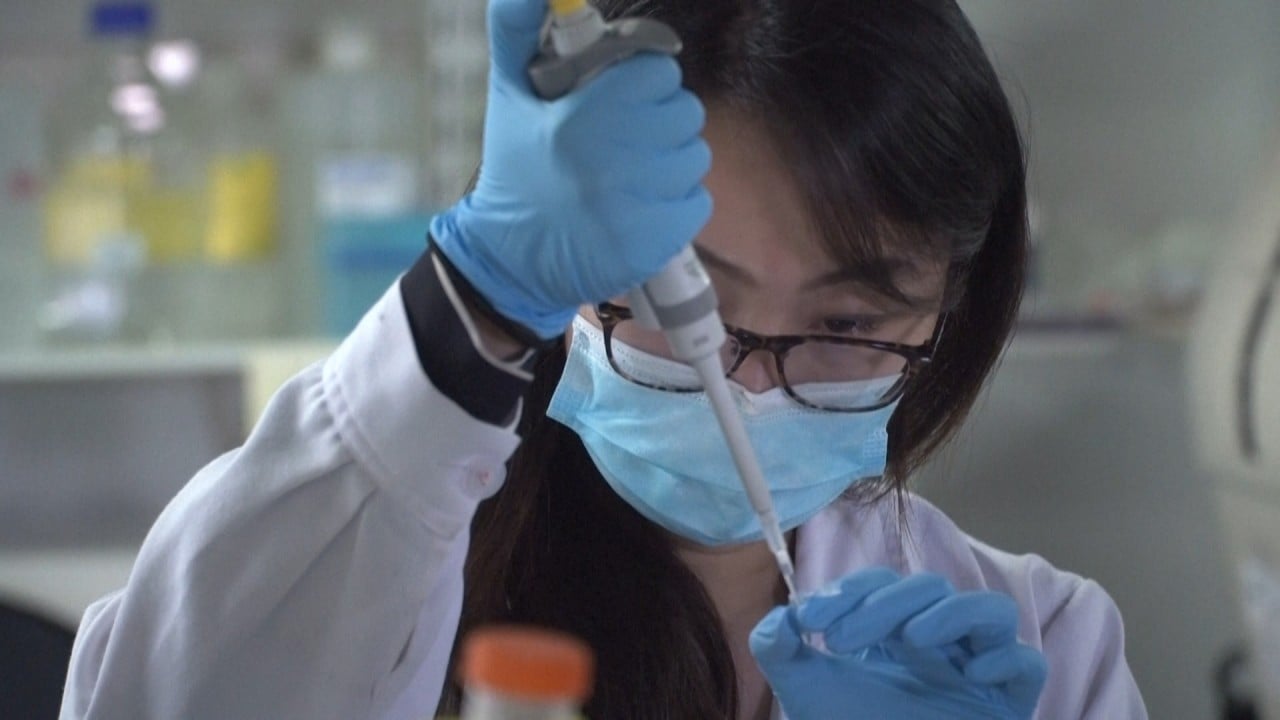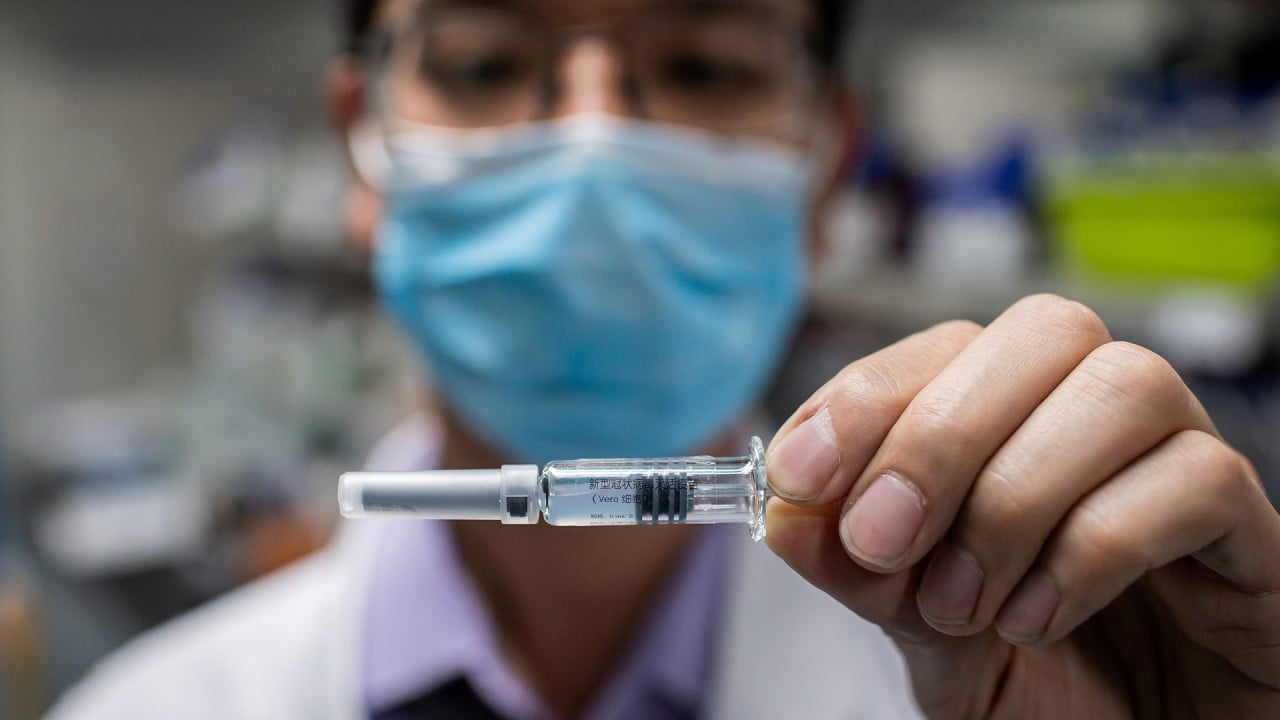
China’s military becomes world’s first to use experimental coronavirus vaccine
- Candidate developed by the PLA and CanSino Biologics added to armed forces’ list for one year
- Proposed vaccine still to go through phase three clinical trials and cannot be used on civilians
It is the first time that a vaccine candidate for Covid-19, the disease caused by the coronavirus, has been authorised for use for the military of any nation.
CanSino said on Monday that the candidate had been through two phases of clinical trials, which indicated it was safe and there was “relatively high” immune response to the antigen.
The candidate is yet to start phase three trials, which would confirm whether it could protect recipients from infection.
The military has approved its use for a year but it has not been authorised for civilian purposes.
It is based on an Ebola vaccine that was developed by Chen but did not go into mass production.
Scientists are racing to find an answer to the coronavirus that has already infected more than 10 million people and killed over 500,000.
New cases continue to surge in the United States and India, with the US confirming more than 40,000 new cases for the third straight day on Monday.
According to the World Health Organisation, clinical trials are under way for 17 vaccine candidates, seven of which have been developed in China.
One candidate developed by Oxford University and AstraZeneca is in phase three studies.

02:10
Scientists in China claim a new drug could stop Covid-19 without a vaccine
Phase one and two studies typically test if a candidate is safe and whether it can generate an immune response from the recipients, but vaccines must complete all three sets of trials to be licensed.
CanSino said it completed phase two trials on June 11, but the company has not yet released data from the study.
Data from the first phase was published in The Lancet medical journal in May. Chen said at the time that the data showed that Ad5-nCoV was a potential candidate for further investigation.
Three other Chinese vaccine candidates have completed phase two trials, with promising results, according to their developers, but not data have been released.
Many Chinese candidates are planning phase three trials in other countries as the spread of the coronavirus in China is too limited to test the efficacy of the vaccine.
CanSino reached an agreement with Canadian government to conduct phase three trials there but details of the studies have not been revealed.

03:06
Chinese firm ready to make 100 million Coronavirus vaccine doses if trials are successful
Chinese officials said earlier that some candidates could be approved for emergency use as early as September, meaning the potential vaccines could be given to people at high risk of the disease.
Sinopharm, a state-owned giant behind two candidates, said it had applied to administer their proposed vaccines to more than 1,000 volunteers from the company.
Phase one trials are also under way on an mRNA vaccine candidate developed by the Chinese military and a protein subunit vaccine developed by the Chinese Academy of Sciences.
An mRNA vaccine consists of an mRNA strand that codes for a disease-specific antigen. After injection into a human body, the cells would use the genetic information to produce the antigen. So far no human mRNA has ever been licensed.
Production has already started ahead of final results for some of the potential vaccines, including the Oxford University candidate, so that doses can be available once they are authorised for use.

